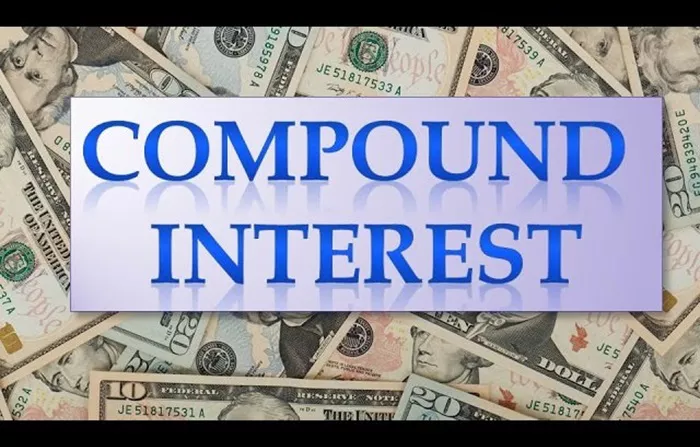Compound interest is often highlighted in discussions about savings accounts and fixed-income investments, where its effects are straightforward and predictable. However, compound interest also plays a vital role in the world of stock investments, albeit in a less conventional manner. For investors, understanding how compound interest interacts with stock investments is essential for maximizing returns and achieving long-term financial goals. This guide explores how compound interest works in the context of stocks, detailing the principles, applications, and strategies to harness its power for investment growth.
1. Basics of Compound Interest
Definition: Compound interest is the process where interest is calculated on the initial principal and on the accumulated interest from previous periods. This results in interest being earned on interest, leading to exponential growth over time.
Interest Calculation: The formula for compound interest is A=P( 1+ r/n ) nt, where:
A: The future value of the investment, including interest.
P: The principal amount or initial investment.
r: The annual interest rate (expressed as a decimal).
n: The number of times interest is compounded per year.
t: The number of years the money is invested.
2. Compound Interest in Stock Investments
Dividends and Reinvestment
Dividend Payments: Stocks often provide dividends, which are periodic payments to shareholders from a company’s earnings. These dividends are typically paid quarterly, but some stocks may offer monthly or annual payments.
Reinvestment Strategy: Reinvesting dividends involves using the dividends received to buy additional shares of the stock. Over time, this increases the number of shares owned, which in turn generates more dividends, creating a compounding effect.
Stock Price Appreciation
Growth Through Appreciation: Stock prices tend to rise over time, and the value of your investment grows as stock prices increase. When you reinvest profits or gains from the sale of appreciated stocks, you continue to benefit from compounding growth.
Compounding Effect: Although stock price appreciation doesn’t compound in the traditional sense, the reinvestment of gains and dividends can produce similar compounding results.
3. The Impact of Time
Long-Term Growth
Exponential Growth: The benefits of compound interest become more significant over long periods. The longer you hold an investment, the more time the interest has to compound, leading to substantial growth.
Early Investment: Investing early allows you to take full advantage of compound interest over a longer horizon, making even small, regular investments grow significantly due to compounding.
Frequency of Compounding
Reinvestment Frequency: Stocks don’t have a fixed compounding frequency like savings accounts. Instead, the compounding effect relies on how frequently dividends and gains are reinvested. More frequent reinvestments lead to greater compounding benefits.
See also: What Happens To Stocks When A Company Goes Private?
4. Practical Example
Dividend Reinvestment Example
Initial Investment: Consider an initial investment of $1,000 in a stock with a 5% annual dividend yield.
Year 1: You receive $50 in dividends. Reinvesting these dividends buys additional shares, raising your total investment to $1,050.
Year 2: With the increased total of $1,050, you earn $52.50 in dividends. Reinvesting these dividends further increases your investment to $1,102.50.
Subsequent Years: Each year, the dividends are based on a larger principal, and reinvested dividends contribute to exponential growth.
5. Risks and Considerations
Market Volatility
Stock Price Fluctuations: Unlike fixed-income investments, stocks are subject to market volatility. Although compound interest can enhance returns, market downturns can affect overall investment performance.
Diversification: Diversifying your investment portfolio across various stocks and sectors can help mitigate the risks associated with individual stock volatility and stabilize your returns.
Investment Strategy
Long-Term Focus: Compound interest benefits from a long-term investment strategy. Avoid frequent trading and focus on holding investments for extended periods to maximize compounding effects.
Consistent Contributions: Regularly investing and reinvesting dividends helps to amplify the compounding effect and build wealth over time.
See also: What Happens To Stocks When Companies Merge?
6. Maximizing Compound Interest in Stock Investments
Regular Contributions
Dollar-Cost Averaging: Investing a consistent amount regularly, regardless of market conditions, can smooth out market volatility and enhance compounding growth.
Automated Investments: Setting up automatic contributions ensures consistent investment and dividend reinvestment, further optimizing compounding effects.
Dividend Reinvestment Plans (DRIPs)
Program Benefits: Many companies offer DRIPs that allow investors to automatically reinvest dividends into additional shares, often at a discount. This can accelerate the compounding effect by increasing the number of shares and overall investment value.
Advantages: DRIPs help build your position without incurring additional transaction fees and can significantly enhance compounding growth.
Conclusion
Compound interest is a critical factor in maximizing returns from stock investments. By understanding how dividends, stock price appreciation, and reinvestment practices contribute to compounding growth, investors can strategically leverage this powerful financial principle to achieve significant long-term gains. Despite the risks and market volatility inherent in stock investments, the benefits of compound interest can be substantial with a well-planned and disciplined investment approach. Embracing consistent investing practices, utilizing dividend reinvestment strategies, and maintaining a long-term perspective are essential for harnessing the full potential of compound interest in the stock market.
Related Topics:

